Source:

BUSINESS DAY TV: Attacq plan includes diversifying both in SA and abroad
by Transcript Service, March 8 2016,
2016-03-10 14:24:08.0
MELT Hamman is chief financial officer of Attacq.
BUSINESS DAY TV: Attacq has achieved a 27.6% growth in net asset value per share adjusted for deferred tax for the full year to December, while it’s grown its total asset value to R27bn since June 2015, when it stood at R23.3bn. Melt Hamman, who is Attacq’s chief financial officer joins us now on the line.
Melt...so quite a set of numbers you’ve put on the table and when it comes to your South African exposure, all the hype is around the Waterfall City developments currently under way. You highlight in your release very conservative estimates around expected visitors, for example, to the Mall of Africa — are you having to temper your expectations even further given the current economic realities?
MELT HAMMAN: Good afternoon...coming back to your question, what we have said, the Mall of Africa will on an annualised basis have about 15-million visitors. I think that is conservative if you compare us with our peers...that is on the conservative side. If you look at where we have taken the negative outlook in the economy into account, is when we’ve valued our remaining vacant land. In our results we refer to the vacant land as development rights because it’s a leasehold agreement.
So what we’ve done there, we always said that the roll-out period is a period between 10 years and 15 years and I would say a year ago, even nine months ago, we were closer to the 10 years, and subsequently we said let’s rather extend the roll-out period closer to the 15 years and then, based on that conservative outlook on the roll-out period, we took about a R200m negative fair value adjustment on our vacant land.
BDTV: To what extent, Melt, are you already starting to see shifts in appetite? For example, is it becoming more difficult to fill new shopping centres with tenants?
MH: If you look at our shopping centres, and fortunately for us we’re sitting with good-quality shopping centres in Mooi River Mall, Garden Route Mall in George and Eikestad Mall, so we haven’t yet experienced an increase in vacancies in those specific shopping centres.
If you come back to Mall of Africa...which is opening in just over 50 days, but existing vacancies less than 1,000 square metres on 131,000 square metres. So I think we’re quite blessed and we’re quite fortunate that our vacancies from a retail view point are on the low side. If you come back to the commercial office space there is definitely less demand in the market.
BDTV: And to what extent are you having to compromise, if at all, on your net rental income?
MH: In the Mall of Africa we definitely don’t compromise because we believe we are offering a unique product, and due to the fact that the shopping centre is new, the access, the parking and also the shopping centre experience. So we haven’t yet reduced any of our rentals but at the end of the day it’s better to fill a vacancy even if a rental is a bit lower than what you would like it to be than sit with a vacancy for three, six, nine months.
BDTV: You say all of this acts as a catalyst for further development — what pipeline are you looking at on that end, and how is that comparing right now to what you have in the pipeline for the rest of SA?
MH: If you look at the Mall of Africa we really believe it’s a catalyst, and the reason why would we believe so strongly that it’s a catalyst is that from the day of opening we will have at least 1-million feet coming through the shopping centre. That will definitely create more awareness around our product offering from a commercial viewpoint.
If you take the Waterfall precinct and we refer to it as Waterfall City, so within Waterfall City our core asset is the Mall of Africa. And then around the city we’ve got commercial and then also a bit of residential offering, so we definitely believe and we’re quite bullish about that, that as soon as the Mall is opening you’ve got all these feet from the City coming through the Mall that people will start asking questions, should I not move my head office to Waterfall?
BDTV: About 19% of Attacq’s total portfolio in terms of value is located outside of SA right now — are you leaning more so to international exposure at this stage given the South African economic and sociopolitical climate?
MH: If you look at what has happened in the last year...international assets have increased substantially in nominal terms...in June or even December 2014, a year ago we had about R4bn of investment. That went up to R7.4bn and the exposure into the international space increased again substantially to R6.4bn. So that is part of our strategy, to diversify not only in SA, not only between retail, commercial, industrial, but also outside of SA and that is to obtain that exposure to the hard currency.
BDTV: Is that more skewed towards your developed markets right now, as opposed to developing markets?
MH: If you look at that balance, and coming back to our total assets of R27bn, 17% of the R27bn currently sits in developed markets and then 7% sits in emerging markets. So it’s about 24%, which is one quarter of our assets are overseas.
BDTV: Yes and of course exciting opportunities and developments happening over in Cyprus and Serbia as well.
MELT Hamman is chief financial officer of Attacq.
BUSINESS DAY TV: Attacq has achieved a 27.6% growth in net asset value per share adjusted for deferred tax for the full year to December, while it’s grown its total asset value to R27bn since June 2015, when it stood at R23.3bn. Melt Hamman, who is Attacq’s chief financial officer joins us now on the line.
Melt...so quite a set of numbers you’ve put on the table and when it comes to your South African exposure, all the hype is around the Waterfall City developments currently under way. You highlight in your release very conservative estimates around expected visitors, for example, to the Mall of Africa — are you having to temper your expectations even further given the current economic realities?
MELT HAMMAN: Good afternoon...coming back to your question, what we have said, the Mall of Africa will on an annualised basis have about 15-million visitors. I think that is conservative if you compare us with our peers...that is on the conservative side. If you look at where we have taken the negative outlook in the economy into account, is when we’ve valued our remaining vacant land. In our results we refer to the vacant land as development rights because it’s a leasehold agreement.
So what we’ve done there, we always said that the roll-out period is a period between 10 years and 15 years and I would say a year ago, even nine months ago, we were closer to the 10 years, and subsequently we said let’s rather extend the roll-out period closer to the 15 years and then, based on that conservative outlook on the roll-out period, we took about a R200m negative fair value adjustment on our vacant land.
BDTV: To what extent, Melt, are you already starting to see shifts in appetite? For example, is it becoming more difficult to fill new shopping centres with tenants?
MH: If you look at our shopping centres, and fortunately for us we’re sitting with good-quality shopping centres in Mooi River Mall, Garden Route Mall in George and Eikestad Mall, so we haven’t yet experienced an increase in vacancies in those specific shopping centres.
If you come back to Mall of Africa...which is opening in just over 50 days, but existing vacancies less than 1,000 square metres on 131,000 square metres. So I think we’re quite blessed and we’re quite fortunate that our vacancies from a retail view point are on the low side. If you come back to the commercial office space there is definitely less demand in the market.
BDTV: And to what extent are you having to compromise, if at all, on your net rental income?
MH: In the Mall of Africa we definitely don’t compromise because we believe we are offering a unique product, and due to the fact that the shopping centre is new, the access, the parking and also the shopping centre experience. So we haven’t yet reduced any of our rentals but at the end of the day it’s better to fill a vacancy even if a rental is a bit lower than what you would like it to be than sit with a vacancy for three, six, nine months.
BDTV: You say all of this acts as a catalyst for further development — what pipeline are you looking at on that end, and how is that comparing right now to what you have in the pipeline for the rest of SA?
MH: If you look at the Mall of Africa we really believe it’s a catalyst, and the reason why would we believe so strongly that it’s a catalyst is that from the day of opening we will have at least 1-million feet coming through the shopping centre. That will definitely create more awareness around our product offering from a commercial viewpoint.
If you take the Waterfall precinct and we refer to it as Waterfall City, so within Waterfall City our core asset is the Mall of Africa. And then around the city we’ve got commercial and then also a bit of residential offering, so we definitely believe and we’re quite bullish about that, that as soon as the Mall is opening you’ve got all these feet from the City coming through the Mall that people will start asking questions, should I not move my head office to Waterfall?
BDTV: About 19% of Attacq’s total portfolio in terms of value is located outside of SA right now — are you leaning more so to international exposure at this stage given the South African economic and sociopolitical climate?
MH: If you look at what has happened in the last year...international assets have increased substantially in nominal terms...in June or even December 2014, a year ago we had about R4bn of investment. That went up to R7.4bn and the exposure into the international space increased again substantially to R6.4bn. So that is part of our strategy, to diversify not only in SA, not only between retail, commercial, industrial, but also outside of SA and that is to obtain that exposure to the hard currency.
BDTV: Is that more skewed towards your developed markets right now, as opposed to developing markets?
MH: If you look at that balance, and coming back to our total assets of R27bn, 17% of the R27bn currently sits in developed markets and then 7% sits in emerging markets. So it’s about 24%, which is one quarter of our assets are overseas.
BDTV: Yes and of course exciting opportunities and developments happening over in Cyprus and Serbia as well.


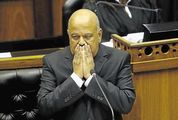
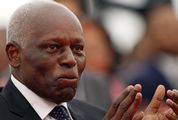
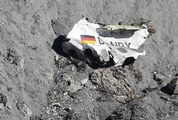
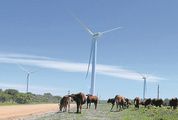


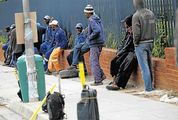

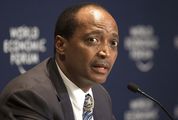










Login OR Join up TO COMMENT